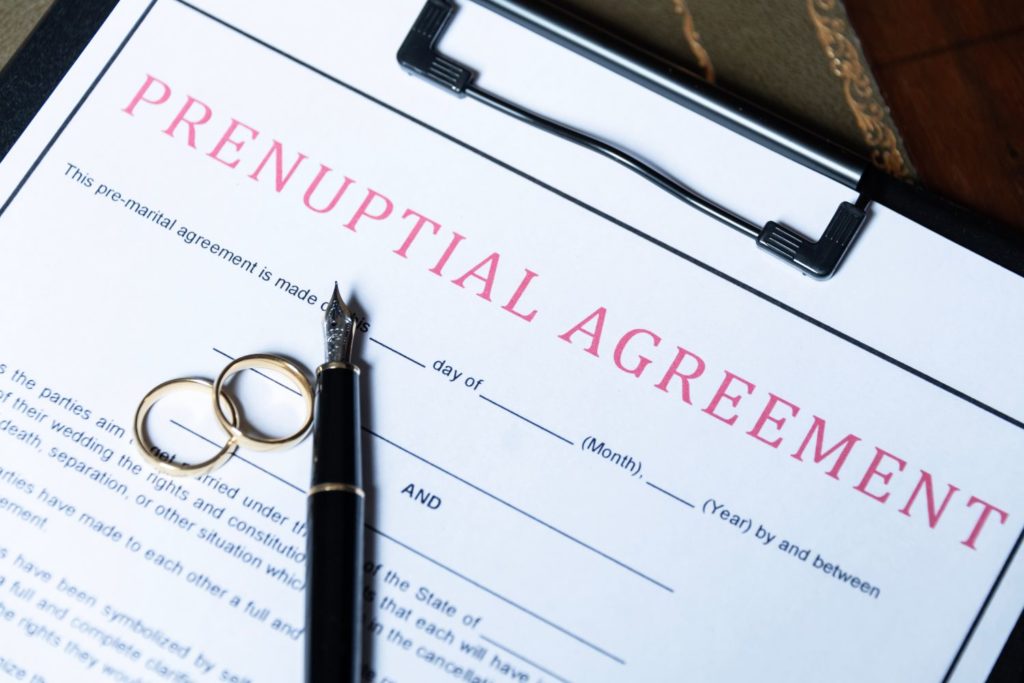Discussing a prenuptial agreement might not seem romantic, but it’s a practical step that can safeguard your financial future. Knowing when to ask for a prenuptial agreement is key to ensuring both partners are on the same page before tying the knot.
In this post, we’ll explore the signs that it’s time to consider a prenup, how to approach the conversation with your partner, and the best strategies for creating an agreement that works for both of you. So, grab a cup of tea, find a comfortable spot, and let’s dive into the world of prenuptial agreements!
Signs It’s Time to Consider a Prenup
Significant Assets or Debts
If either you or your partner has significant assets or debts, a prenuptial agreement can help protect your individual financial interests. This includes property, investments, or business ownership.
Previous Marriages
For those who have been married before, a prenup can help protect existing assets and ensure that children from previous marriages are provided for.
Disparity in Wealth
If there is a substantial difference in wealth between you and your partner, a prenuptial agreement can ensure that both parties are treated fairly in the event of a divorce.
Business Ownership
If you own a business, a prenup can protect your business interests and ensure that your partner does not gain control of your business assets.
Future Inheritance
If you expect to receive a significant inheritance, a prenuptial agreement can help protect these future assets.
Career Sacrifices
If one partner plans to make career sacrifices for the benefit of the marriage, such as staying home to raise children, a prenup can ensure they are compensated fairly.
Preparing to Ask for a Prenup
Educate Yourself
Before discussing a prenuptial agreement with your partner, educate yourself about what a prenup entails and how it can benefit both parties. Understanding the legal implications and protections offered by a prenup will help you have a more informed conversation.
Reflect on Your Reasons
Consider your reasons for wanting a prenuptial agreement. Reflect on your financial situation, your assets, and any potential future changes. Knowing why you want a prenup will help you explain its importance to your partner.
Plan the Timing
Choose a time to discuss the prenuptial agreement well before the wedding. This ensures that both parties have enough time to consider the agreement without feeling rushed or pressured.
Prepare for the Conversation
Think about how you will introduce the topic to your partner. Approach the conversation with sensitivity and openness. Be ready to explain your reasons and listen to your partner’s concerns.

How to Ask for a Prenuptial Agreement
Choose the Right Moment
Select a calm, private moment to discuss the prenuptial agreement. Avoid bringing it up during stressful times or arguments. A relaxed environment can help facilitate a constructive conversation.
Be Honest and Direct
Express your feelings honestly and directly. Explain why you believe a prenuptial agreement is important and how it can protect both partners’ interests. Use “I” statements to convey your thoughts without sounding accusatory.
Highlight the Benefits
Focus on the benefits of a prenuptial agreement for both parties. Explain how it can provide financial clarity, protect individual assets, and prevent potential conflicts in the future.
Listen to Your Partner
Give your partner the opportunity to express their feelings and concerns. Listen actively and empathetically. Address any worries they may have and be open to discussing potential compromises.
Seek Professional Guidance
Suggest consulting a lawyer together to understand the legal aspects of a prenuptial agreement. A legal professional can provide impartial advice and help draft an agreement that is fair and comprehensive.
Common Mistakes to Avoid
Bringing It Up Too Late
Avoid waiting until the last minute to discuss a prenuptial agreement. Bringing it up too close to the wedding can create unnecessary stress and pressure.
Being Insensitive
Discussing a prenuptial agreement can be an emotional topic. Approach the conversation with sensitivity and respect your partner’s feelings.
Ignoring Your Partner’s Concerns
Be prepared to address your partner’s concerns and questions. Ignoring their feelings can lead to resentment and conflict.
Not Consulting a Lawyer
A prenuptial agreement is a legal document that requires careful consideration. Consult with a lawyer to ensure the agreement is legally sound and protects both parties’ interests.
Focusing Only on Your Interests
A prenup should be fair and considerate of both partners’ needs. Avoid creating an agreement that only benefits you without considering your partner’s perspective.
Asking for a prenuptial agreement is a practical and responsible step in planning for your future together. By recognizing the signs, preparing thoughtfully, and communicating openly with your partner, you can create an agreement that provides peace of mind and financial clarity. Remember, a prenup is about protecting both of your interests and ensuring a fair outcome for your marriage.

